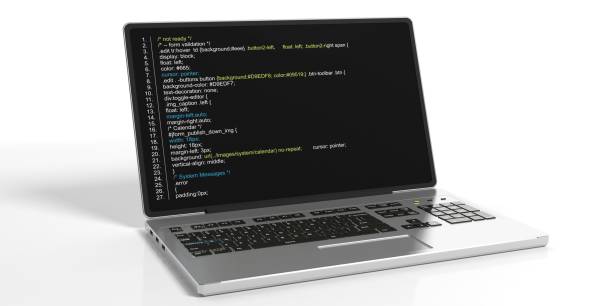
In today’s tech-driven world, coding has become a highly sought-after skill. Whether you’re a budding programmer or an experienced developer, having the right laptop is crucial for your productivity and success.
But with the overwhelming variety of options in the market, choosing the best laptop for coding can be a daunting task. This article will guide you through the essential factors to consider when selecting a laptop that suits your coding needs.
1. Understand Your Coding Requirements
Before diving into specifications, it’s essential to understand the nature of your coding work. Different programming tasks require varying levels of performance:
- Web Development: Most modern laptops can handle web development tools such as VS Code, HTML, CSS, and JavaScript.
- Mobile App Development: You’ll need a laptop capable of running resource-intensive software like Android Studio or Xcode.
- Game Development: This demands high-performance GPUs, ample RAM, and powerful CPUs.
- Data Science/AI: Large datasets and machine learning algorithms require laptops with high RAM, powerful processors, and potentially a dedicated GPU.
2. Key Specifications to Consider
Processor (CPU)
The processor is the heart of your laptop. For coding, aim for at least an Intel Core i5 or AMD Ryzen 5 processor. If your budget allows, opt for an Intel Core i7 or Ryzen 7 for faster performance. These processors can handle multitasking and complex computations smoothly.
RAM
RAM is vital for running multiple applications simultaneously. For most coding tasks, 8GB of RAM is the minimum requirement. However, for intensive tasks like game development or machine learning, 16GB or 32GB is ideal.
Storage
Choose laptops with SSDs (Solid State Drives) over traditional HDDs. SSDs significantly improve the speed of boot times, file transfers, and software performance. A minimum of 256GB SSD is recommended, but 512GB or more is preferable for storing projects, tools, and large datasets.
Graphics Processing Unit (GPU)
While a dedicated GPU isn’t mandatory for all coders, it’s essential for game developers and those working in machine learning. NVIDIA GeForce GTX or RTX series GPUs are great choices.
Display
A good display reduces eye strain during long coding sessions. Look for:
- Resolution: A minimum of Full HD (1920×1080) is recommended.
- Screen Size: A 13-inch laptop is portable, but a 15.6-inch screen offers better visibility.
- Panel Type: IPS panels provide better viewing angles and color accuracy.
Keyboard and Trackpad
Comfortable typing is non-negotiable for programmers. Look for a laptop with:
- Well-spaced keys with good travel distance.
- Backlit keyboards for low-light environments.
- A responsive and accurate trackpad.
Battery Life
Portability is key for developers working remotely or traveling. Choose laptops with at least 6-8 hours of battery life to ensure productivity on the go.
3. Operating System (OS)
The operating system plays a significant role in your coding experience:
- Windows: Compatible with most programming tools and popular for its versatility.
- macOS: Essential for iOS development and offers a polished user experience.
- Linux: Favored by developers for its open-source nature and command-line interface.
4. Budget-Friendly Options
Not everyone can afford premium laptops. Some excellent budget-friendly options include:
- Acer Aspire 5: Ideal for beginners with limited budgets.
- Lenovo IdeaPad series: Offers good performance at a reasonable price.
- Dell Inspiron series: Reliable and durable for everyday coding tasks.
5. Recommended Laptops for Coders

Here are some tried-and-tested laptops for coding professionals:
- Apple MacBook Pro (M1/M2): Perfect for macOS enthusiasts and iOS developers.
- Dell XPS 15: A premium option with stunning visuals and top-tier performance.
- HP Spectre x360: A versatile 2-in-1 option for developers who value style and substance.
- ASUS ROG Zephyrus G14: A great choice for game developers with its powerful GPU.
6. Test Before You Buy
Whenever possible, test the laptop before making a purchase. Evaluate the keyboard feel, screen quality, and overall build. If testing in person isn’t an option, rely on user reviews and professional recommendations online.
Conclusion
Choosing the best laptop for coding is about balancing your needs, budget, and future goals. By prioritizing essential specifications like the processor, RAM, storage, and display, you can invest in a device that enhances your productivity and stands the test of time.
At TechAfri, we’re committed to empowering tech enthusiasts like you with actionable advice and resources. Ready to explore more? Check out our next article on “Top Tech Jobs With the Highest Salaries” to complement your new laptop and elevate your professional journey!

